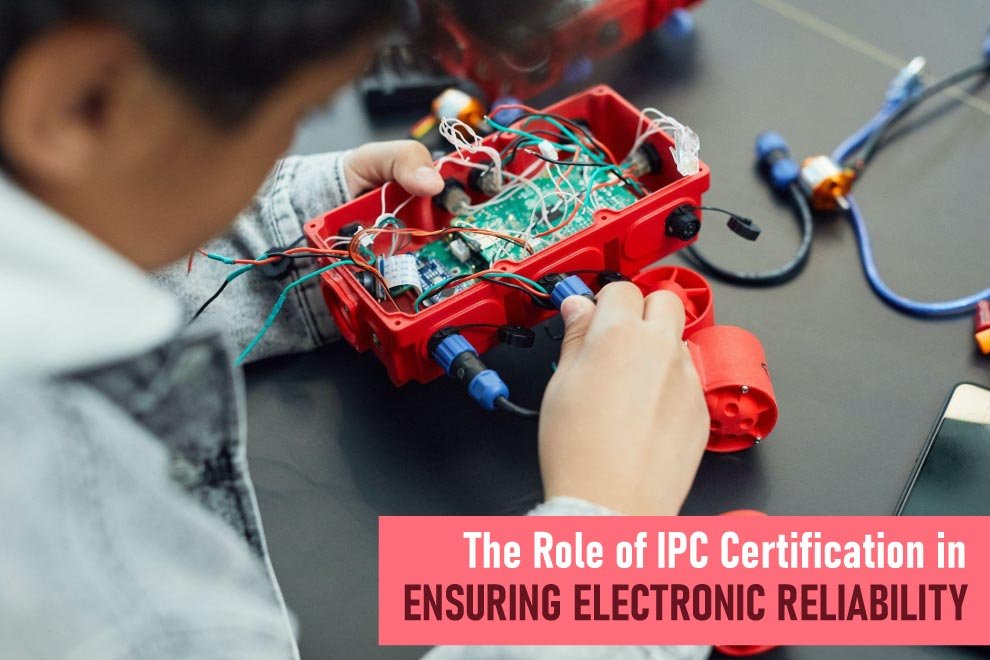In the intricate world of electronics, where precision and reliability are paramount, the International Electro technical Commission (IPC) sets the standard for excellence through its rigorous certification processes. One such crucial aspect is the IPC certification, a cornerstone in ensuring the reliability and quality of electronic components. In this article, we delve into the significance of IPC certification and explore its impact on electronic devices’ overall reliability.
Understanding IPC Certification: A Benchmark for Excellence
IPC certification, short for the Institute for Printed Circuits, is a globally recognized standard that establishes guidelines for the design, manufacture, and assembly of electronic components. The certification covers a wide spectrum of aspects, including materials, processes, and workmanship, with the overarching goal of enhancing the reliability and performance of electronic products.
IPC Class: Defining Excellence in Electronic Manufacturing
Within the realm of IPC certification, the concept of IPC classes plays a pivotal role. IPC classes categorize electronic products based on their application and the level of performance and reliability required. These classes, often referred to as IPC-A-610 classes, range from Class 1 to Class 3, each catering to specific industries and applications.
Class 1: This class includes products where the primary requirement is basic functionality. These are often considered as general electronics, where performance is not a critical factor.
Class 2: Products falling under this class require a higher level of reliability and performance. Industries like consumer electronics and appliances often adhere to Class 2 standards.
Class 3: Reserved for high-performance electronics, Class 3 sets the bar for the most stringent requirements. Aerospace, medical devices, and military applications are examples of industries that mandate adherence to Class 3 standards.
Ensuring Reliability through IPC Certification: A Three-Class Approach
1. Basic Functionality (Class 1): While Class 1 products may not demand high reliability, IPC certification ensures that even the simplest electronic devices meet the established quality standards. This is particularly crucial in preventing malfunctions or failures due to subpar manufacturing practices.
2. Enhanced Reliability (Class 2): As we move up the IPC classes, the focus shifts to enhanced reliability. IPC certification ensures that electronic components designed for consumer use, such as smartphones or household appliances, meet the criteria for durability and performance.
3. Critical Performance (Class 3): In industries where reliability is non-negotiable, such as aerospace or medical applications, IPC Class 3 certification is imperative. The stringent standards set by IPC ensure that electronic components can withstand extreme conditions and perform flawlessly under critical circumstances.
IPC Certification: A Seal of Quality Assurance
The significance of IPC certification extends beyond a mere label. It serves as a seal of quality assurance, assuring manufacturers, designers, and end-users that electronic products meet or exceed industry-recognized standards. This, in turn, instills confidence in the reliability of electronic devices, fostering trust among consumers and businesses alike.
The Impact on Electronic Reliability
1. Reduced Failures: IPC certification, with its stringent standards, significantly reduces the likelihood of electronic failures. This is particularly crucial in applications where malfunctions can have severe consequences, such as in medical equipment or aerospace technology.
2. Extended Lifespan: Electronics designed and manufactured under IPC standards often exhibit an extended lifespan. The rigorous testing and quality control measures ensure that components can withstand the test of time, contributing to the longevity of electronic devices.
3. Compatibility and Interoperability: IPC certification not only emphasizes reliability but also ensures compatibility and interoperability. Electronic components adhering to IPC standards seamlessly integrate into larger systems, promoting a cohesive and reliable operation.
Upholding Excellence in Electronic Manufacturing
In conclusion, IPC certification, with its focus on reliability and performance, stands as a beacon of excellence in the realm of electronic manufacturing. The categorization into IPC classes provides a systematic approach, tailoring the standards to the specific needs of different industries. Whether it’s ensuring basic functionality, enhancing reliability, or meeting critical performance requirements, IPC certification plays a pivotal role in shaping the future of electronic devices. As technology continues to advance, the adherence to IPC standards will remain a fundamental practice, guaranteeing that electronic components not only meet but exceed the expectations for reliability in our interconnected and technologically driven world.
ALSO READL: What Is a Black Box? A Walkthrough in Its Diverse Dimensions


